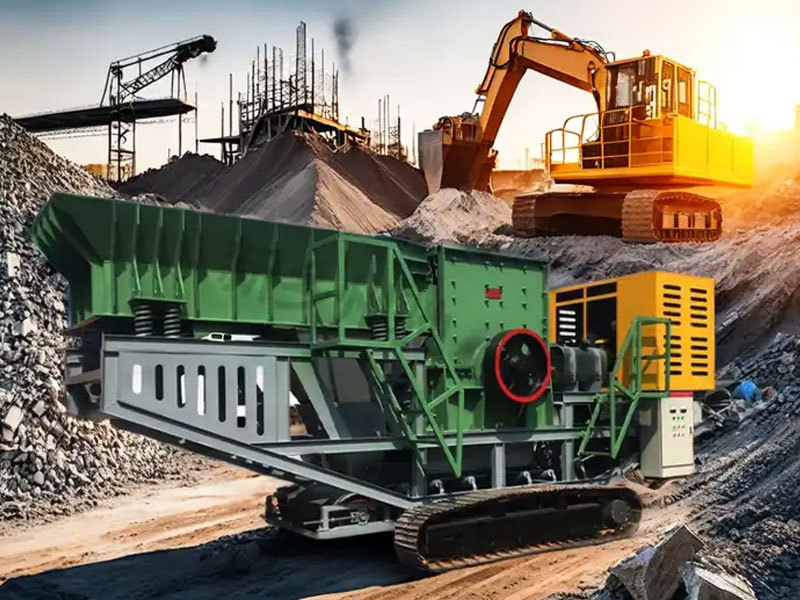Understanding Heavy Duty Crushing Plants: A Key Component in Material Processing
Oct 14,2025

Heavy duty crushing plants are integral to the manufacturing and processing sectors, especially when dealing with tough materials that require powerful machinery to break down effectively. These plants are designed to handle a variety of materials, including rocks, concrete, and other substantial aggregates, making them essential in construction, mining, and recycling operations.
One of the primary characteristics of heavy duty crushing plants is their robust construction. These units are engineered to withstand rigorous demands and operate under challenging conditions. Typically, they are built with high-strength materials that enhance durability and reduce maintenance costs over time. This durability is crucial for industries where downtime can lead to substantial financial losses.
The technology behind heavy duty crushing plants varies, but they generally employ several types of crushers, such as jaw crushers, cone crushers, and impact crushers. Each type offers unique advantages tailored to specific material processing needs. For example, jaw crushers are known for their ability to handle larger feed materials, while cone crushers excel in producing finer outputs. Understanding the specific requirements of your operation can help determine which type of crushing plant is most suitable.
Moreover, heavy duty crushing plants are often equipped with advanced features like automated controls and monitoring systems. These technologies enhance efficiency and safety during operation. Automated systems can help optimize performance by adjusting parameters based on real-time data, thus ensuring the equipment operates within its ideal range. This not only maximizes productivity but also conserves energy, making it a more environmentally friendly option.
In addition, heavy duty crushing plants are often mobile, allowing for greater flexibility in operations. The ability to relocate these plants to different job sites means that companies can adapt quickly to changing project requirements. This mobility can significantly reduce transportation costs and improve overall project efficiency.
The applications for heavy duty crushing plants are vast. From paving roads to preparing materials for recycling, these plants play a pivotal role in various industries. Their ability to process tough materials efficiently makes them the backbone of many construction and demolition projects.
In summary, heavy duty crushing plants represent a crucial investment for any business involved in material processing. With their durable construction, advanced technology, and versatility, these plants not only enhance productivity but also contribute to sustainability in the manufacturing process. Understanding the benefits and features of these systems can empower professionals to make informed decisions that will optimize their operational capabilities.
One of the primary characteristics of heavy duty crushing plants is their robust construction. These units are engineered to withstand rigorous demands and operate under challenging conditions. Typically, they are built with high-strength materials that enhance durability and reduce maintenance costs over time. This durability is crucial for industries where downtime can lead to substantial financial losses.
The technology behind heavy duty crushing plants varies, but they generally employ several types of crushers, such as jaw crushers, cone crushers, and impact crushers. Each type offers unique advantages tailored to specific material processing needs. For example, jaw crushers are known for their ability to handle larger feed materials, while cone crushers excel in producing finer outputs. Understanding the specific requirements of your operation can help determine which type of crushing plant is most suitable.
Moreover, heavy duty crushing plants are often equipped with advanced features like automated controls and monitoring systems. These technologies enhance efficiency and safety during operation. Automated systems can help optimize performance by adjusting parameters based on real-time data, thus ensuring the equipment operates within its ideal range. This not only maximizes productivity but also conserves energy, making it a more environmentally friendly option.
In addition, heavy duty crushing plants are often mobile, allowing for greater flexibility in operations. The ability to relocate these plants to different job sites means that companies can adapt quickly to changing project requirements. This mobility can significantly reduce transportation costs and improve overall project efficiency.
The applications for heavy duty crushing plants are vast. From paving roads to preparing materials for recycling, these plants play a pivotal role in various industries. Their ability to process tough materials efficiently makes them the backbone of many construction and demolition projects.
In summary, heavy duty crushing plants represent a crucial investment for any business involved in material processing. With their durable construction, advanced technology, and versatility, these plants not only enhance productivity but also contribute to sustainability in the manufacturing process. Understanding the benefits and features of these systems can empower professionals to make informed decisions that will optimize their operational capabilities.

